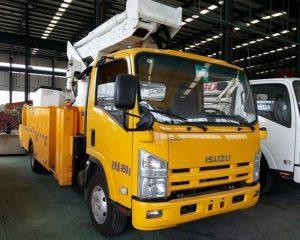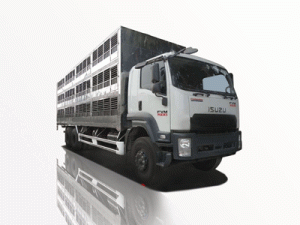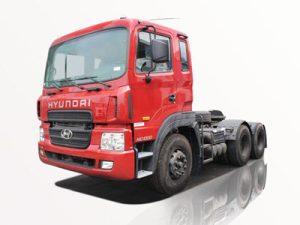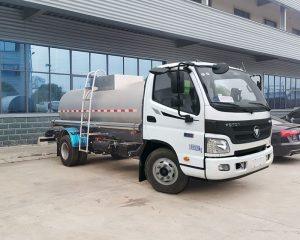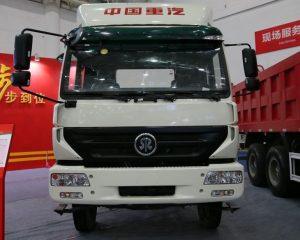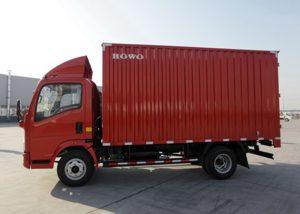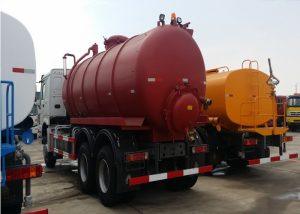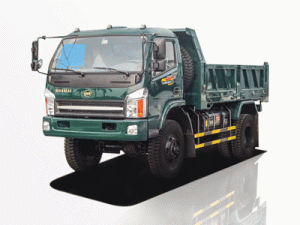Monday to Saturday - 8:00 -17:30
Exploring the World of Small Single Cab Trucks: A Comprehensive Guide
Small single cab trucks have gained popularity due to their compact size, versatility, and efficiency. These vehicles are ideal for both personal use and commercial applications, providing the perfect balance between functionality and maneuverability. In this article, we will delve into the various aspects of small single cab trucks, including their benefits, top models, buying guide, tips for maintenance, and much more.
What Are Small Single Cab Trucks?
A small single cab truck is defined as a light-duty pickup that features a single row of seating in the front and a separate cargo area. These trucks are celebrated for their small footprint, making them easy to drive and park in urban settings while still providing the rugged utility that pickup trucks are known for.
Key Features of Small Single Cab Trucks
- Compact Design: Easier to navigate in tight spots.
- Fuel Efficiency: Generally more fuel-efficient than larger models.
- Versatile Cargo Space: Adequate for transporting goods without sacrificing performance.
- Affordability: Typically less expensive than full-sized trucks.
Benefits of Small Single Cab Trucks
Small single cab trucks offer numerous advantages that cater to a wide range of needs. Here are some benefits worth considering:
1. Maneuverability
Due to their smaller size, small single cab trucks can navigate easily through city streets and tight parking spaces. This makes them a practical choice for urban dwellers or those who frequently visit job sites with limited access.
2. Cost Savings
Small single cab trucks generally cost less than their larger counterparts, both in terms of purchase price and ongoing expenses like fuel and maintenance. This affordability makes them an attractive option for budget-conscious buyers.
3. Fuel Efficiency
With smaller engines and lighter frames, these trucks often achieve better fuel economy compared to larger models, leading to significant long-term savings on fuel costs.
4. Versatile Usage
The cargo area is typically adequate for hauling tools, equipment, or even light loads for weekend projects, making them versatile for both work and leisure.
5. User-Friendly
Ease of driving and handling makes small single cab trucks suitable for first-time truck owners or those who prefer a vehicle that is less intimidating than full-sized models.
Top Small Single Cab Trucks on the Market
Let’s explore some of the highly-rated small single cab trucks available today:
| Model | Engine | Max Payload | Fuel Efficiency (MPG) | Starting Price |
|---|---|---|---|---|
| Ford Ranger | 2.3L EcoBoost I-4 | 1,650 lbs | 21 city / 26 highway | $25,980 |
| Chevrolet Colorado | 2.5L I-4 | 1,574 lbs | 19 city / 26 highway | $26,300 |
| GMC Canyon | 2.5L I-4 | 1,620 lbs | 19 city / 25 highway | $26,800 |
| Nissan Frontier | 3.8L V6 | 1,460 lbs | 18 city / 24 highway | $28,000 |
| Toyota Tacoma | 2.7L I-4 | 1,440 lbs | 20 city / 23 highway | $26,400 |
What to Consider When Buying a Small Single Cab Truck
Purchasing a small single cab truck can be a significant investment, so it’s essential to consider several factors before making a decision:
1. Intended Use
Consider how you plan to use the truck. Will it be for everyday commuting, hauling cargo, or weekend adventures? Your primary use will influence the choice of engine and features.
2. Engine Power
Look at the engine options available. If you need to tow or carry heavy loads, a more powerful engine may be necessary. However, if you’re using it for light-duty tasks, a smaller engine might suffice.
3. Payload Capacity
Be aware of the payload capacity of the truck. Evaluate your typical cargo needs and make sure to choose a model that can handle those weights comfortably.
4. Fuel Economy
Examine the fuel efficiency ratings to ensure the truck remains economical for your daily driving needs.
5. Safety Features
Look for modern safety features such as airbags, stability control, and advanced driver assistance systems. These features can enhance your safety on the road.
Maintenance Tips for Small Single Cab Trucks
Like any vehicle, regular maintenance is vital to keeping your small single cab truck running optimally. Here are some practical maintenance tips:
1. Regular Oil Changes
Changing the oil regularly helps maintain engine health. Refer to the owner’s manual for the recommended oil change intervals.
2. Tire Care
Monitor tire pressure and tread depth. Rotate tires regularly to ensure even wear and extend their lifespan.
3. Brake Maintenance
Inspect brake pads and rotors periodically. Address any squeaking or grinding noises immediately to avoid further damage.
4. Keep it Clean
Wash your truck frequently to remove dirt, salt, and debris that can lead to rust and damage.
5. Check Fluid Levels
Regularly check and top off essential fluids, including coolant, brake fluid, transmission fluid, and windshield washer fluid.
Practical Examples of Small Single Cab Truck Use
Small single cab trucks can serve a variety of purposes effectively. Here are some examples:
1. Construction Work
For construction workers, small single cab trucks can transport tools and materials to job sites without the bulk of larger vehicles. A model like the Ford Ranger excels in this role due to its high payload capacity.
2. Delivery Services
Small local businesses can utilize single cab trucks to deliver goods efficiently. The Chevrolet Colorado’s fuel efficiency helps keep operational costs low.
3. Recreational Use
Outdoor enthusiasts often prefer small single cab trucks for activities such as camping or off-roading. The Toyota Tacoma offers versatility and durability for rugged terrain.
4. Everyday Commuting
Single cab trucks can double as daily drivers, providing comfort and capability for commuting while still offering the practicality for weekend outings.
Environmental Impact of Small Single Cab Trucks
The impact of small single cab trucks on the environment is a topic of concern as well. Here’s how they can contribute positively:
1. Fuel Efficiency
More fuel-efficient engines produce lower carbon emissions, making small single cab trucks an environmentally friendlier option compared to larger models.
2. Alternatives to Traditional Fuels
Some manufacturers offer models that support alternative fuels or hybrid technology, further reducing their environmental footprint.
3. Lower Resource Use
Smaller trucks require fewer resources to manufacture and maintain, which can have a lesser impact on the environment overall.
Future Trends in Small Single Cab Trucks
As the automotive industry continues to evolve, so do small single cab trucks. Here are a few trends to watch:
1. Electric Options
Growing interest in electric vehicles (EVs) the introduction of electric small single cab trucks is on the horizon, providing eco-conscious consumers with more options.
2. Advanced Safety Features
More manufacturers are equipping small trucks with advanced driver assistance features, enhancing safety and performance.
3. Improved Connectivity
Incorporation of smart technology for better navigation, connectivity, and vehicle management will continue to rise.
FAQs About Small Single Cab Trucks
1. What is the difference between a small single cab truck and a full-sized truck?
Small single cab trucks are designed for light-duty tasks and have a smaller footprint, making them easier to maneuver. Full-sized trucks offer more power, payload capacity, and passenger space.
2. How much can a small single cab truck tow?
Towing capacity varies by model but typically ranges from 3,000 to 7,000 pounds. Always refer to the specific truck’s owner’s manual for precise towing specs.
3. Are small single cab trucks good for off-roading?
Many small single cab trucks are well-suited for off-road conditions, especially those with features like four-wheel drive and elevated ground clearance.
4. What are the best maintenance practices for small single cab trucks?
Regular oil changes, tire maintenance, brake inspections, and keeping fluid levels topped off are essential for longevity and performance.
5. How do you choose the best small single cab truck for your needs?
Consider factors such as towing capacity, engine power, fuel efficiency, intended use, and safety features to determine the best model for your requirements.
6. Are small single cab trucks suitable for families?
While small single cab trucks may not offer as much passenger space as larger trucks or SUVs, they can still be suitable for small families who need utility and value compactness.


